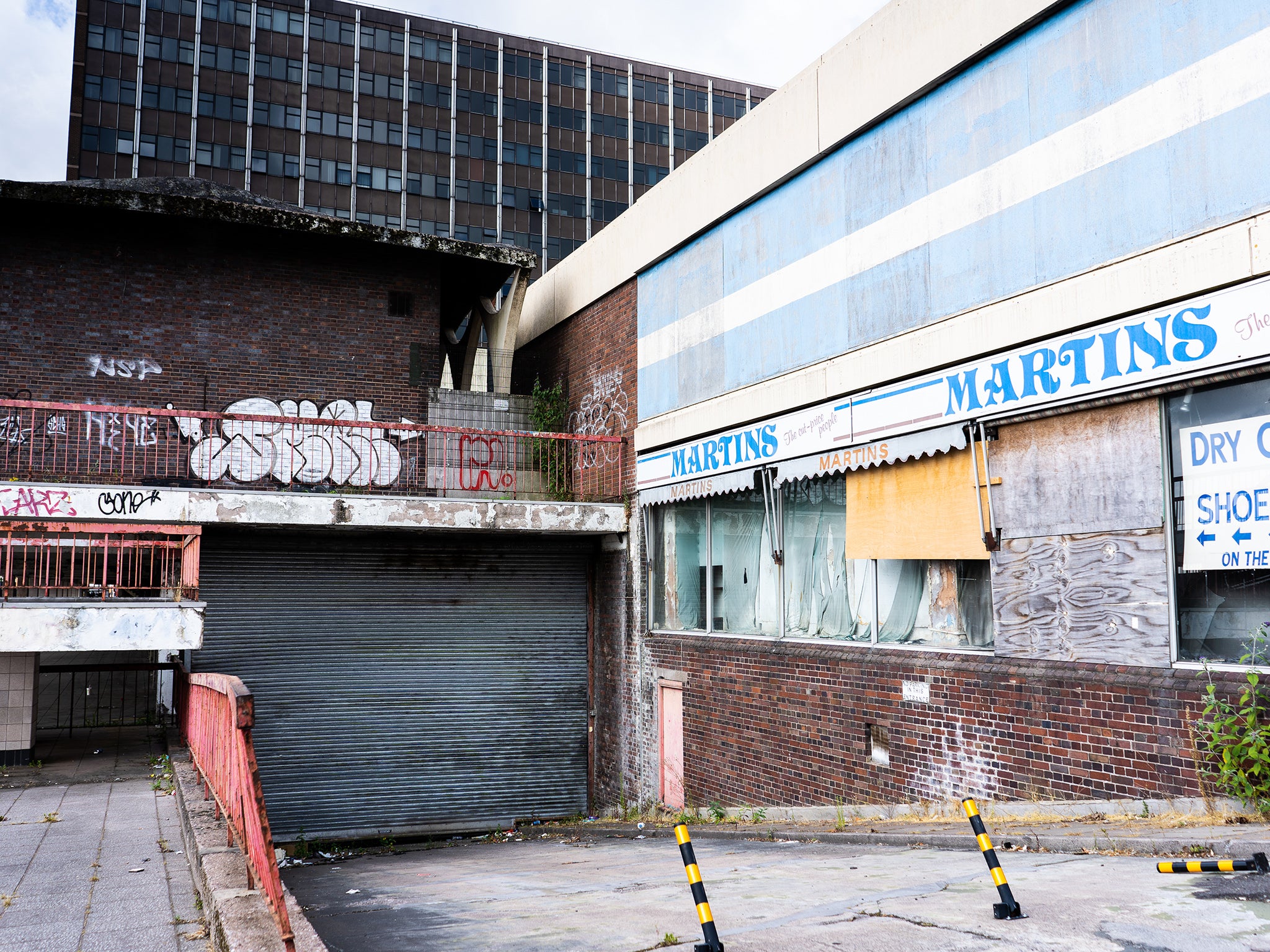Road map to a better Britain: 10 things the UK economy needs
In the third and final instalment of his new book, ‘Beyond Brexit: Liberal Politics for the Age of Identity’, Vince Cable shares his plan for a more prosperous, socially just and environmentally sustainable society


In these essays I have argued that Britain has a malfunctioning economy and a badly divided society. These are both a cause and, increasingly, a consequence of Brexit. The financial crisis in 2008 caused great and lasting damage, even if the damage was minimised in the closing stages of the last Labour (Brown) government and then by the coalition government. There remain many underlying weaknesses: an over-dependence on the financial sector, low savings and investment, poor performance in innovation and training, a totally dysfunctional housing market and a business culture dominated by short-term thinking. These problems are now compounded by Brexit uncertainty, which in turn is feeding a poisonous and divisive politics.
In a world of populist politics, there is a search for simple solutions to complex problems. We need to build on strong, stable, operationally independent structures overseeing economic policy, which rely on evidence and expertise to counter the snake-oil salesmen who promise self-financing tax cuts and magically financed expenditure. As liberals and democrats we must not succumb to fear-based politics but instead offer a route to a better future.
Here I summarise my proposals in a 10-point Roadmap to a Better Britain – to build a more prosperous, socially just and environmentally sustainable society.
1. Strong public services and honest tax
Within an overall framework of rules and financial discipline, the need for better funded public services and a programme of poverty alleviation is paramount. This has to be honestly financed by taxation.
The tax system is over-complex and needs radical reform to shift the burden of tax from work, savings and innovation on to unproductive wealth, land, expenditure (online or in shops, equally) and environmentally damaging activities – and meaningful international cooperation to ensure that the global rich and tax-dodging companies and individuals pay their share. Even within the disciplined approach to public finance I’ve argued for, there is scope for considerably increased public investment for infrastructure and housing, alongside the private sector, paid for by public borrowing and subject to a rigorous test of impact.
2. An entrepreneurial state
Party political debate is disfigured by an ancient and debilitating ideological conflict over the roles of the public and private sectors. Successful, profitable, competitive private enterprise is to be valued while the state has an essential economic role in promoting education and training, science and, especially, innovation and infrastructure, all within an industrial strategy which prioritises advanced manufacturing, emerging technologies and services like creative industries and professional services.
3. Bring in the left-behind

The “left-behind” towns and communities cannot be expected to catch up simply from the trickle-down of successful cities. We need an urgent programme of targeted public (alongside private) investment using the model of the successful Regional Growth Fund on a bigger scale. While the economy remains so centralised, we need to rebalance power away from London and redistribute resources based on need and potential
4. The best education in the world
The priority area for public spending should be education, at all levels to bring the UK closer to the standards of the best, internationally. A particular gap is post-16 education, where the long-standing neglect of vocational and adult learning needs to be remedied. The best approach would be a generous individual learning account for all young adults to pay for the fees involved in quality lifelong learning.

5. Competitive and responsible business
A healthy economy demands competition and forceful policing of anti-competitive behaviour. The natural monopolies of rail, water supply and energy distribution need smarter regulation rather than renationalisation. And government should tax excess profits over a utility rate of return. The main threat to competition comes from the major internet platforms which operate de facto monopolies across national frontiers. The response has to include a welcome for innovation, transnational (ie EU) curbs on monopoly, national regulation of damaging content and protection of consumers, including payment for the use of their data, as is now being developed in California.
There remain many underlying weaknesses ... These problems are now compounded by Brexit uncertainty, which in turn is feeding a poisonous and divisive politics
The British takeover regime is too lax, providing lucrative fees for some but undervaluing long-term performance by good companies. Let’s give greater voting rights to long-term investors or disenfranchise speculative short-term investors. Maintaining and strengthening the science base should be an important national interest test in takeover cases.
The current model of business in which directors’ overriding duty is short-term profit is discredited. There has to be a rebalancing of responsibilities, through the reform of corporate governance, to long-term and wider responsibilities including to employees, customers and the environment. Government should be much more actively encouraging different models of corporate structure: social enterprises, mutual and employee ownership.
6. Fair labour markets
Labour markets have become too flexible, undervaluing security, loyalty, training and experience. The outcome is full employment but depressed wages and low productivity. Many workers, as well as employers, welcome flexible arrangements but the pendulum has swung too far towards “hire and fire”. We need tougher enforcement of the minimum wage, stronger legal rights for “gig”, and other flexible employment models, and a strengthening of the opportunities for collective action (including electronic balloting in unions).

The economic arguments for a liberal immigration regime for workers inside and outside the EU are powerful. But there are undoubted costs, notably in the impact on the housing market. And there is a reasonable demand to ensure that migration is managed. It is simply not correct to suggest that Britain has to leave the EU single market to ensure some management of migration flows within the framework of “freedom of movement”.
7. A housing market that works for young people

The housing market is badly broken, with severe negative implications for most of the younger generation and those in relative poverty. There is an urgent need for large-scale building of social housing by councils and housing associations alongside affordable housing to buy. Existing policy which inflates demand and prices, like Help to Buy, is counterproductive. It will be necessary to acquire land cheaply, through compulsory purchase without inflated valuation created through the planning system, and through a managed market in which houses can also be sold on at affordable prices.
8. The green imperative for a sustainable future
Awareness of the environment has to provide a green thread throughout policy. Action on reducing greenhouse gas emissions is imperative as part of a global process to combat global warming; the UK already has strong prescriptive legislation, a record of reducing emissions and diverse technology initiatives. But carbon reduction policy has recently gone into reverse, and there needs to be a renewed and urgent commitment to solar, wind and tidal renewable energy, to energy efficiency and to curbing aviation emissions. There is much to be said for mobilising activity around an ambitious US-style Green New Deal, albeit with a greater willingness to use markets and without reliance on magical money.
9. Open to the world
As a medium-sized developed country, whether inside or outside the EU, Britain has limited scope for useful unilateral action; outside the EU, it would not be taken very seriously in any event. As an outward-looking country, we have to play a role in common security and in defending a rules-based system around trade, international finance, environmental commons, tax rules, nuclear proliferation, the protection of human rights and much else. One of the most dangerous dimensions of populist politics is a revival of nationalism and the rejection of cooperative arrangements. We must not indulge either.
10. Fix our broken politics

Underlying many current failings in the UK is a creaking and increasingly discredited political system. A reform agenda must include a change in the first-past-the-post electoral system for local government and the House of Commons, an elected second chamber, an overhaul of party funding and a radical decentralisation of power to local government, going beyond the “earned autonomy” of the current elected mayor model.
The two main, traditional, parties are starting to break up. This is welcome and Liberal Democrats should be acting as a partner and a catalyst to aid the formation of a new liberal and social democratic force to take forward and implement these ideas.
While the immediate battle in British politics is to stop the damage caused by Brexit and keep open the option of going back to the public – the possibility of Remain is still very much alive and decidedly worth fighting for. The ideas in this roadmap give us an agenda for future action.
Sir Vince Cable is leader of the Liberal Democrats. This article is extracted from ‘Beyond Brexit’, a collection of essays on the future of liberalism
Join our commenting forum
Join thought-provoking conversations, follow other Independent readers and see their replies
Comments
Bookmark popover
Removed from bookmarks